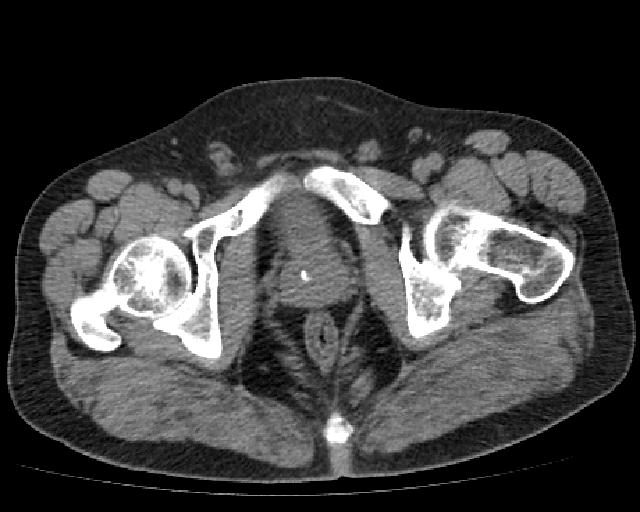Updated 10/19/21
 A common prostate health problem faced by millions of men is something called Prostate calcification, or prostate stones. Oftentimes, this is a very common cause of chronic prostatitis (prostate infection) or chronic pelvic pain syndrome.
A common prostate health problem faced by millions of men is something called Prostate calcification, or prostate stones. Oftentimes, this is a very common cause of chronic prostatitis (prostate infection) or chronic pelvic pain syndrome.
Subsequently, Prostatic calculi 6 or prostate stones, can affect up to 75% of men between the ages of 45 and 65. 6 Midlife men often report prostate health symptoms, such as enlarged prostate and chronic prostatistis.
While annoying and even painful, prostate stones can result in frequent problems, such as:
- prostate pain.
- painful ejaculation.
- and dry ejaculation, in which a male reaches climax during sexual intercourse or masturbation without the release of semen.
- Prostate calcification can also result in weak urine stream.
Most urologists do not consider Prostate stones to be a dangerous or life threatening condition in itself, but can be related to prostate cancer. As a result, this is the reason you should go to the doctor immediately if you have pain in your prostate. It may be nothing, or it may be a precursor to more serious prostate health issues.
How to Get Rid of Prostate Stones for Good?

Prostate stones, appear to be calcified proteinaceous bodies called corpora amylacea. 7. Usually, this is often the result of prostatic fluid build up in the prostate ducts. When the fluid is not flushed away, it can calcify into stone-like objects in the prostate gland.
This form of prostatitis is due to urine that flows from the urethra into the prostatic ducts, and not through the penis. Ultimately, toxins found in urine allows for bacteria to form. This leads to prostate infection and the formation of prostate calcification.
Ultimately, prostate stones are a leading cause of chronic prostatitis and chronic pelvic pain syndrome. Prostate stones are fairly common in men over age 50, and affect up to 75% of middle-aged men who have enlarged prostate or prostate infection. Interestingly, some men with prostate calcification never experience any pain or discomfort.
Symptom of Prostate Stones (Prostatitis)
- Frequent Pain and swelling of the prostate gland.
- Enlarged prostate (BPH).
- Pain in the groin.
- Weak urine stream.
- Painful ejaculation.
- Symptoms disappear temporarily with prostate mediation or antibiotics, but the pain and symptoms eventually return.
- Elevated PSA score.
- Lower urinary tract infection
Prostate stones can be determined through a routine prostate exam, PSA test or ultrasound to detect the presence of prostate stones.
If left untreated, prostate stones can become infected and can lead to prostatitis, also known as prostate infection, and are frequently a leading source of chronic prostate infection.
Natural Remedy for Prostate Stones
Western medical doctors too often prescribe prescription medications to treat Prostate infection. This is often an ineffective treatment. Unfortunately, antibiotics temporarily remedy the infection, but not the source of the infection. The breeding ground unfortunately remains active. This alows the painful symptoms to recur in one to three months.
Many doctors now recommend a cocktail of antibiotics to clear the infection, along with magnesium and zinc supplements. Magnesium and zinc, which are often prescribed to people with kidney stones. This remedy seems to be effective in helping break up the prostate stones, so they can pass though your urine.
Some men find that prostate massage, can help reverse the symptoms of prostate stones. This process increases healthy blood flow and oxygen to the prostate gland, which can help reverse prostate stones. This technique helps flush away prostate calcification to clear the prostate ducts of calcification and toxic bacteria, which can lead to prostate infection.
Magnesium and Zinc for Prostate Stones

Anecdotal evidence seems to suggest that taking an effective magnesium supplement, and zinc helps to break up these stones. As a result, you may see “gravel” in your semen or urine if this occurs. Studies show that magnesium chloride intake can reverse calcification damages to the prostate gland. 8
Other doctors say that there is no dietary change or supplement that will help with stones caused by prostatic secretions. So that issue is controversial. If you have prostatic calcification talk to you doctor to see what he or she thinks.
Natural prostatitis treatments for the inflammation associated with prostatic calcification include magnesium supplements, prostate massage, diet modification, and elimination of foods from your diet, like simple sugars, saturated fats from red meat, and dairy products. Eat healthy foods that reduce inflammation like heart-healthy fats, fatty fish rich in omega-3 fatty acids, and foods high in lycopene (tomatoes and watermelon).
Prostate stones in the prostate ducts are very common. They appear to be calcified proteinaceous bodies, known as corpora amylacea.
The occur when the secretions of the prostate cannot get out of the gland. This is because of the disarray of the architecture of the ducts due to BPH or benign prostatic hypertrophy.
It is thought that these secretions dry out or become “inspissated.” This can form into a round proteinaceous body, much like a pearl in an oyster.
Conclusion:
Prostate stones, which are quite common in men over age 50, can be an annoyance. Thankfully, they are not dangerous if treated effectively and timely.
Lack of treatment, including supplementation with magnesium, prostate massage and diet modification, can lead to chronic prostatitis. This can be painful and difficult to eliminate if the bacteria becomes calcified and turns into prostate stones. As a result, this can lead to long term pain and discomfort in the groin area.
Sources:
1. http://radiopaedia.org/articles/prostatic-calcification
2. http://www.drugs.com/answers/magnesium-chloride-good-prostate-674388.html
3. http://www.chinamedcure.com/calc.htm
4. http://www.ncbi.nlm.nih.gov/pmc/articles/PMC3364472/
5. https://en.wikipedia.org/wiki/Corpora_amylacea
6. https://pubmed.ncbi.nlm.nih.gov/29076299/
7. https://pubmed.ncbi.nlm.nih.gov/32271960/
8.https://www.drugs.com/answers/magnesium-chloride-good-prostate-674388.html
Ken Weiss is a health blogger who is passionate about natural and holistic cures for men’s health issues. He is the founder of menshealthcures.com